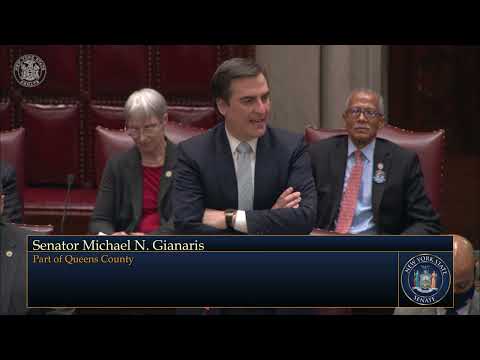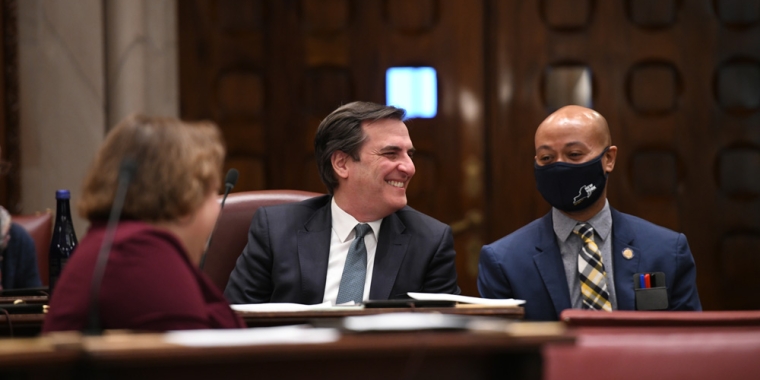
The Intercept: NYPD Disappeared Black Lives Matter protestors for days at a time. Lawmakers Want To End That Practice.

IN EARLY JUNE, hundreds of Black Lives Matter protesters languished for days in cramped New York City jail cells. Stuck in holding pens without masks and exposed to soiled conditions amid the coronavirus pandemic, they were unable to reach loved ones or lawyers. The protesters were effectively disappeared into New York City’s detention system.
Attorneys from the Legal Aid Society went to court to demand the protesters’ immediate release. In a lawsuit filed against the New York Police Department, attorneys from Legal Aid, a public defense organization, alleged that over 400 individuals in city detention facilities had been held for more than 24 hours without seeing a judge, in breach of state law and detainees’ constitutional rights.
The public defenders accused the police department of deliberately slow-rolling standard procedures to keep protesters in jail as payback for demonstrations against police brutality. Lawyers for the police asserted that the NYPD faced unprecedented challenges with both a pandemic and widespread protests raging.
In a one-line decision, Judge James M. Burke of the State Supreme Court in Manhattan sided with the police. “All writs are denied,” he ruled. In doing so, Burke accepted the NYPD’s rationale that the conditions on the ground should overrule preexisting state law: The 1991 Roundtree v. Brown decision established the 24-hour standard from arrest to arraignment.
Burke’s decision set off a firestorm. Protesters flocked to Manhattan’s Foley Square, near the state and federal courthouses, demanding the release of the protesters.
“The law doesn’t have a looter exception, it doesn’t have a Covid-19 exception,” said Russell Novack, one of the Legal Aid staff attorneys who brought the suit. “This was deliberate, intentional punishment for protesting.”
In the state capital of Albany, a progressive Democrat from Queens said his new bill would ensure that New Yorkers are never again disappeared into detention. State Sen. Michael Gianaris introduced a bill to codify the Roundtree decision and better track detentions. Already having pushed the legislation through two committees, Gianaris will bring his bill before the legislature’s full upper chamber on Wednesday.
The bill would oblige all police departments in New York State to either bring an arrested individual before a judge within 24 hours or immediately release them upon request.
It would also add a new section to the laws governing habeas corpus in New York, clarifying that anyone held for more than 24 hours before their arraignment is entitled to release unless the police produce “clear and convincing evidence that such a delay” is warranted. Under the new statute, police departments would have to give an individualized explanation for each person’s delay — something the NYPD did not have to do last month.
“In the United States, we like to fancy ourselves as having a justice system that protects civil liberties,” Gianaris told The Intercept. “An important tenet of that is that one shouldn’t be imprisoned without being found guilty of a crime and certainly not without being charged with a crime.”
A KEY COMPONENT of the bill, Gianaris said, is that it would force all municipalities in New York state with over a million residents — only New York City would qualify — to create a detained persons registry. The registry would serve as a database of all arrested individuals and be accessible only to authorized users from public defender organizations — such as the Legal Aid Society and others like the defenders network that operates around the city — contracted with the city to represent criminal defendants.
The registry would eliminate the arbitrary power of the police to disappear people in the system, he added. “That’s a very scary proposition,” Gianaris said of allowing police to hold individuals over 24 hours without seeing a judge.
The NYPD did not respond to requests for comment on the bill.
The bill is widely expected to sail through the Democratic-controlled Senate before heading to the Assembly as soon as this week. It is unclear whether Gov. Andrew Cuomo, who in June called on city district attorneys to keep looters in jail for longer than 24 hours, would seek to veto the measure.
The Intercept reached out to several protesters swept up in the mass arrests last month. All declined to speak on the record, citing ongoing cases against them, including breaking Mayor Bill de Blasio’s weeklong curfew, which could carry a Class-B misdemeanor charge.
The district attorneys for Manhattan, Brooklyn and the Bronx have publicly stated that they will not prosecute protesters arrested for low-level offenses. Still, the court cases remain scheduled, in September and October.
Steve Zeidman was a supervisor at the Legal Aid Society on the Roundtree case. Nearly three decades later, he said the decision has never been properly enforced. The Gianaris bill, he said, will only be successful if judges choose to enforce it.
“The court’s unwillingness to hold the prosecutors and the police department’s feet to the fire rendered the Roundtree decision toothless in many cases,” said Zeidman, a CUNY Law School professor. “The crisis is that this bill is even necessary.”
Read the full article at The Intercept here.



